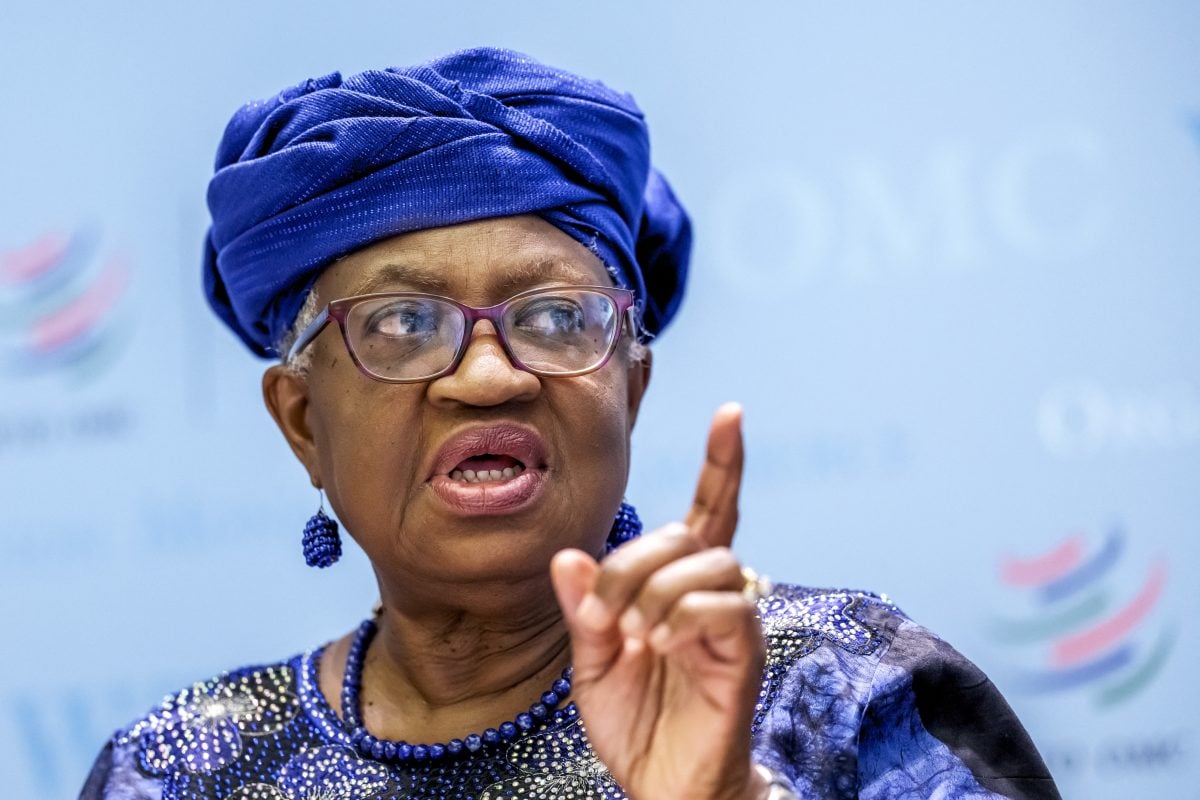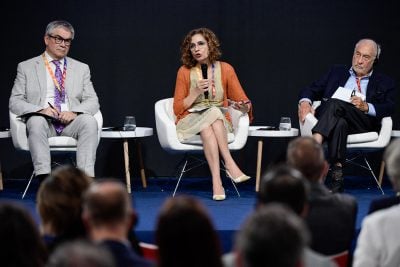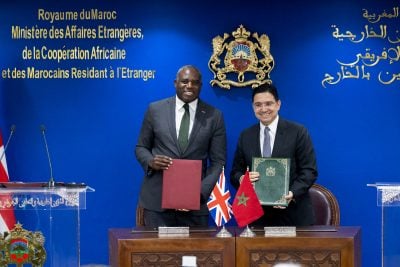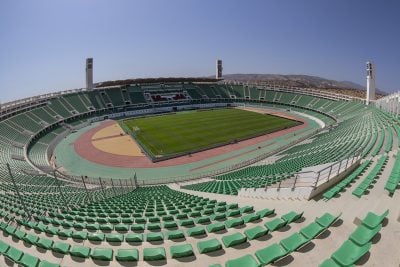When the World Trade Organisation’s girector general, Ngozi Okonjo Iweala, addressed the opening plenary session at the 4th Finance for Development Conference in Seville, she insisted that sustainable global development was still achievable even against a trade backdrop defined by US President Donald Trump’s tariff war.
But her message to the conference was hedged with uncertainty.
“I don’t think that a conference has ever gathered in such difficult times. Difficult for the world, for our shared development aspirations, and for the means to finance the attainment of these aspirations.”
Okonjo-Iweala said that developing countries that had been hoping to increase export revenues to help prevent deterioration in their balance of payments must now contend with disruption so considerable that it is feeding into financial instability.
“This is why we have argued that least developed countries as a group, and Africa as a region, should be exempted from these reciprocal tariffs, so we can better integrate them into the world trading system, not further exclude them, so that they can stand a better chance to earn the resources with which to deliver on the Sustainable Development Goals.”
Earlier this year, at the launch of the WTO’s 2025 World Trade Outlook, the WTO projected that global merchandise trade volumes will decline by 0.2% in 2025 – nearly three percentage points below the level expected without recent trade policy shifts. A reinstatement of “reciprocal” tariffs would shave 0.6 percentage points off this forecast, lowering the projected growth rate to –0.8%. A a broader spread of policy uncertainty beyond US trading relationships would reduce growth by another 0.7 percentage points.
Multiple African countries have been targeted by higher Trump tariffs pending a three-month consultation period. Among the African countries hardest hit by Trump’s drive to introduce what he says are ‘reciprocal’ tariffs are the Southern African states of Lesotho, whose goods will be hit with a tariff of 50%; Madagascar (47%); Mauritius (40%); Botswana (37%); Angola (32%) South Africa (30%); Namibia (21%); Zimbabwe (18%); Zambia (17%) and Malawi (17%).
Just days after the FfD4 conference in Sevilla came to an end, on the 9th July, Washington announce the imposition of 30% tariffs on the European Union and Mexico from the 1st August. Donald Trump also announced last week that his administration will hit Brazil with a 50% tariff on products sent to the US.
The introduction or reintroduction of further tariff barriers that was announced less than a week after the FfD4 conference is expected to make the global trade slowdown even worse.
Measures to reboot global trade
Okonjo-Iweala was quick to lay out a strategy to counter the headwinds currently buffeting the world’s trade system.
“We therefore need to bolster stability and predictability in global trade. This involves action at multiple levels. First, we need to shore up the 74% of global goods trade that continues to cross borders on the basis of the WTO’s most favoured nation (MFN) tariffs. And we need to ensure more countries can seize exciting opportunities to earn more resources to finance themselves through services, digital, green and blue trade.
“Second, we believe that cooperative solutions to existing trade problems, not unilateral approaches, are the best way to go. But at the same time, we need to ask ourselves, how did we get here? And we need to respond to legitimate criticisms by the US, the European Union, developing countries and others that have been raised by trying to listen to these criticisms and reform and reposition the WTO.
“We must not waste this crisis if the WTO is to continue to offer a good value proposition for its members. Ministers must step up at the upcoming 14th Ministerial Conference in Cameroon and embrace and push forward the necessary reforms. We need to complement these multilateral reforms by also stepping up ongoing economic integration at the regional level in Europe, in Africa, Asia and Latin America,” she said.
Ojonko-Iweala also called for progress on unlocking investment and finance in order to close the trade finance gap in developing countries.
Call to scrap subsidies
Okonjo-Iweala also reiterated World Bank President Ajay Banga’s call for the removal of wasteful subsidies – a controversial topic in Africa where some sectors still receive significant government funding.
“I want to emphasise once again that we have large amounts of financing locked up in harmful subsidies, which we should seek to repurpose.
“He (Banga) mentioned $1.2 trillion. Actually, if you add some of the ones in agriculture and water and harmful fishery subsidies, we have almost $2 trillion locked up in subsidies that are doing more harm than good.”
As a former Nigeria finance minister, Okonjo Iweala recognises the political difficulties involved in phasing out subsidies.
”I will just point out that if we can repurpose one-third to one-half of these subsidies, we will have much of the resources we need to address the problems of tackling the problems of meeting the Sustainable Development Goals (SDGs).”
The WTO, she said, has done its part by helping to phase out $22bn in harmful fishery subsidies that lead to illegal, unregulated, and unreported fishing. 102 countries have ratified an agreement to this effect so far.
“We need only nine more countries to let this come into effect,” the WTO director general said.
“Yes, we are in difficult times and we face tough constraints, but we still have room to act, at home and with each other, to put sustainable development and financing back on track. A reformed multilateral trading system is certainly poised and willing to do its part,” she concluded.
Want to continue reading? Subscribe today.
You've read all your free articles for this month! Subscribe now to enjoy full access to our content.
Digital Monthly
£8.00 / month
Receive full unlimited access to our articles, opinions, podcasts and more.
Digital Yearly
£70.00 / year
Our best value offer - save £26 and gain access to all of our digital content for an entire year!

 Sign in with Google
Sign in with Google 



